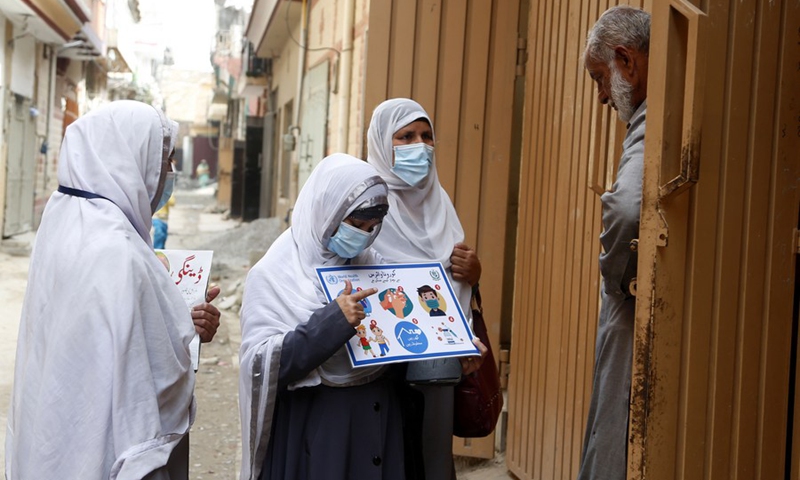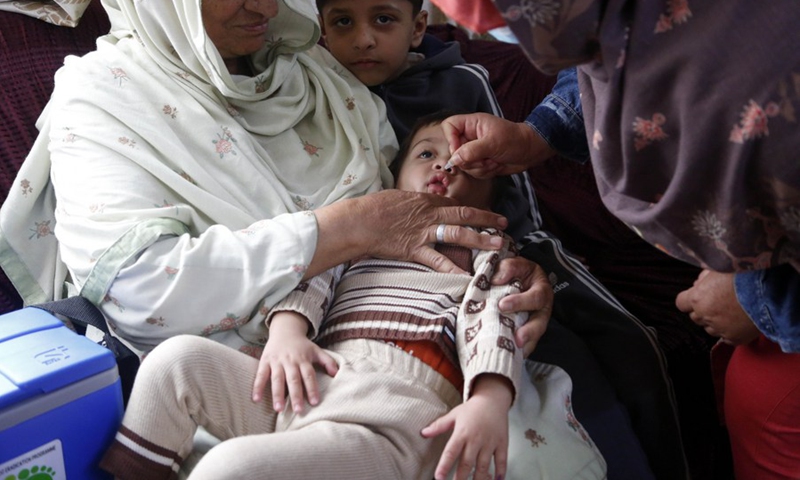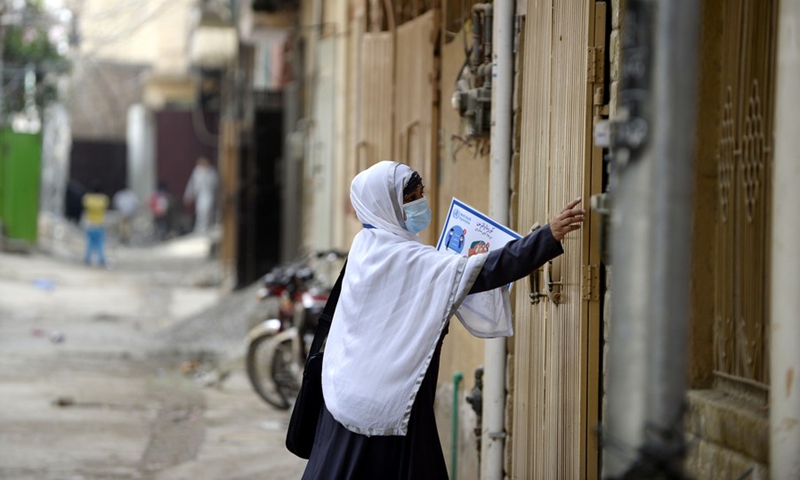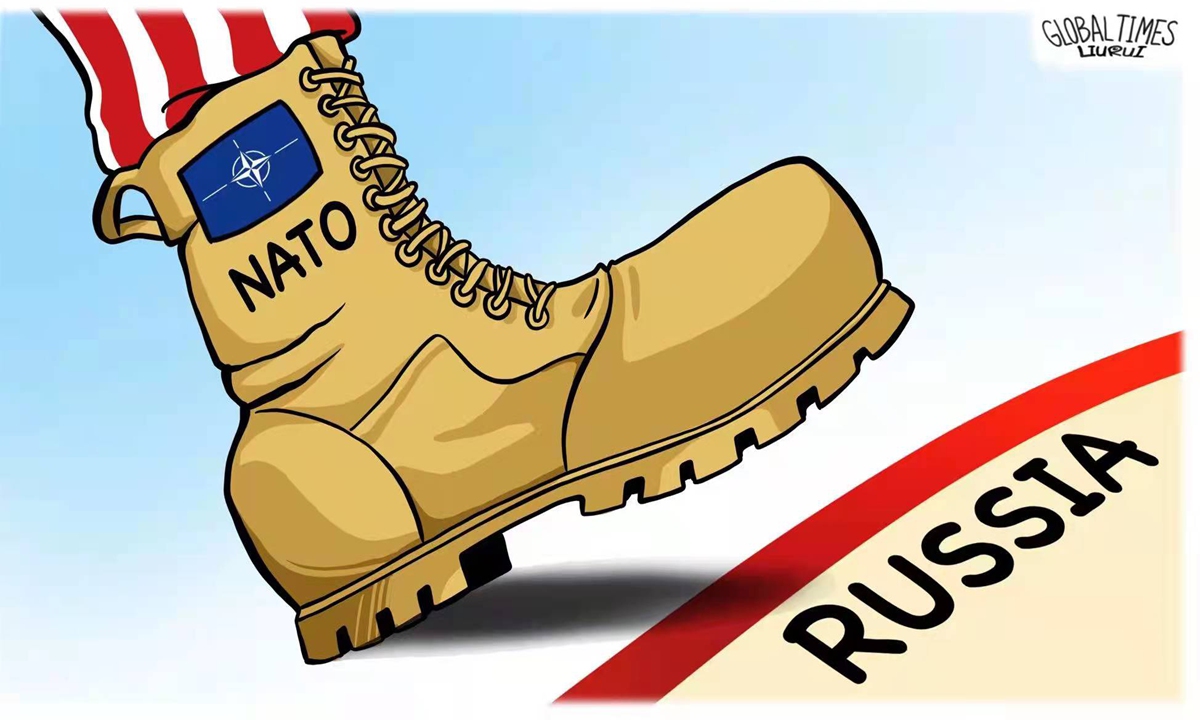Despite threats and pressure, Pakistani lady health workers provide at-home services to rural families

Female health workers brief a resident about COVID-19 during a door-to-door health service camping on the outskirts of Islamabad, capital of Pakistan, on March 8, 2022.(Photo: Xinhua)

A female health worker administrates polio-vaccine drops to a child during a door-to-door health service camping on the outskirts of Islamabad, capital of Pakistan, on March 8, 2022.(Photo: Xinhua)

A female health worker rings a bell of a house during a door-to-door health service camping on the outskirts of Islamabad, capital of Pakistan, on March 8, 2022.(Photo: Xinhua)

Cause of war Cartoon: Liu Rui/GT
In a mountainous village in Pakistan's northwest Khyber Pakhtunkhwa (KP) Province, Almeena Iftikhar has been providing door-to-door primary health care to women and children for 26 years.
"I have had to remain strong on every step of my journey," she told Xinhua recently. "There have been threats from militants, terrible weather conditions and natural disasters. It is constant diet of social and environmental pressure."
According to Pakistan's health ministry, a large number of lady health workers (LHWs) work in family planning and primary health care. Since 1994, these women have spearheaded a widespread community program that provides essential care. Their main task is minimizing infant and maternal mortality rates and to ensure expectant mothers have regular antenatal checkups.
They administer anti-polio drops to kids and drive immunization programs for infants and toddlers. They talk to women about personal care and general health matters, including COVID-19.
"Anti-polio drive is a big one for us. At the peak of terrorism from 2005-2016, our work was very difficult indeed. When the drive began, we were scared to leave home in the morning. Many health workers become the target of a terrorist bullet," Iftikhar said.
Over 120 LHWs have been killed during anti-polio campaigns, mainly in KP. Though the law-and-order situation has greatly improved since the defeat of the militants, sporadic attacks continue.
"I knew Shakeela Naz personally. Her eyes used to light up with the dreams she had for her son. She wanted to be a doctor. Her dreams were mercilessly shattered by six bullets to the head. We remember Naz with a heavy heart, and are often afraid that we will meet the same fate."
Pakistan and neighboring Afghanistan are the only two countries where polio retains its grip on infant health. Both border on China, which was declared polio-free in 2000. It is a testament to the bravery of thousands of rural women that Pakistan reported only one case of the virus last year.
Muhammad Haroon runs most of the polio campaign in KP. He lays credit for the country's transformation firmly at the door of these women.
"They have had so many troubles to overcome," said Haroon. "Even their own communities were very hostile towards them at the beginning. People were scared of what they were doing to their kids, but the women kept on doing their job, despite all resistance."
"They never lost hope, never gave up, and kept on visiting people in their homes and explaining what they were trying to do. Eventually, people opened their doors and welcomed them in," he said.
And it is not just polio. The number of stillbirths and the mortality rate of pregnant women have drastically decreased, Haroon added.
On International Women's Day, Pakistanis remembered the contribution of women working at the grassroots of rural health care, who remain determined to help their communities however they can, with no thought for their own safety or situation.
"Initially, society was hesitant to welcome the LHWs into their homes, especially more conservative families. But with the passage of time, we are being accepted, and we are getting our due respect from people," said Bushra Arain, head of the All Pakistan Lady Health Workers Association.
"We will keep on doing our work with the same dedication we have always given to the healthcare system."
